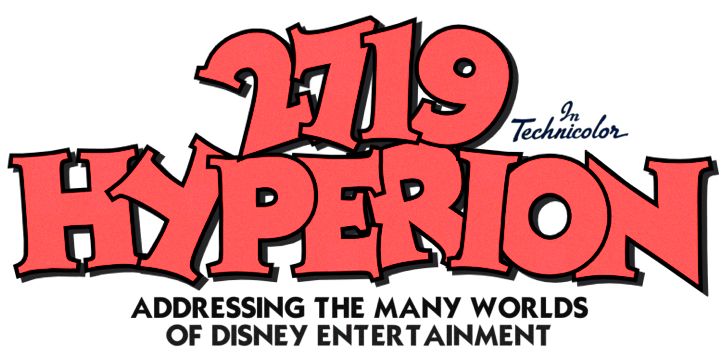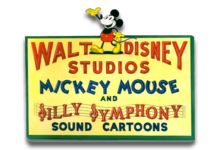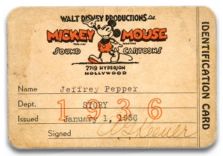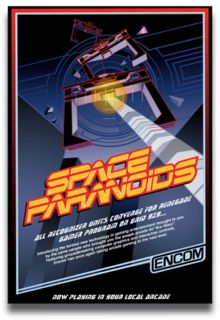First the good news: The Rocketeer has been released in a remastered high defintion Blu-Ray. It appears that Disney took note of the numerous pundits and bloggers who, earlier in the year, called for such an edition to commemorate the 20th Anniversary of the film's original release. The not-so-good news: the Blu-Ray release is an embarrassing bare bones affair, devoid of all but the film itself. It is yet another reminder of the sad state of Walt Disney Home Entertainment and its utter lack of interest in marketing to Disney enthusiasts and historians. With The Rocketeer, they threw us a bone, and as noted, it is a very bare bone indeed.
Since there is so little to say about the new Blu-Ray release, I will reprint the content of the Retro Review I posted earlier this year as part of our own celebration of the film's 20th Anniversary:
Two decades ago, one of Disney's better live-action films met with a severe case of audience apathy. It has since languished in unfortunate obscurity despite being an exceptionally well crafted period adventure and a loving homage to vintage movie serials and 1930s era pulp heroes.
The Rocketeer deserves to fly much, much higher.
I personally found the film to be very much in the tradition of early Disney live-action movies, though in setting, eras removed from the studio's 19th century adventure stories and swashbucklers. I am always loathe to in any way channel the ghost of Walt Disney, but I think he would have approved of The Rocketeer, if not necessarily the slightly edgier Dave Stevens' comic books upon which the movie was based. Much in the way that Jules Verne and Robert Louis Stevenson provided the boyhood nostalgia for Walt that he then successfully translated into motion pictures, the filmmakers behind The Rocketeer similarly tapped into the nostalgia of classic Hollywood B-movies and serials, and combined that inspiration with the new-found romance with aviation that was prevalent during the 1930s . The result was an exciting and entertaining romp that was largely ignored by film-goers who, during that summer of 1991, were more enticed by the groundbreaking special effects of Terminator 2: Judgment Day and the comedy antics of Billy Crystal in City Slickers.
The Rocketeer was Joe Johnston's sophomore directing effort. Johnston, a special effects veteran who had cut his teeth with George Lucas on the original Star Wars films, was fresh with success from directing Disney's own Honey I Shrunk the Kids when he was enlisted to helm The Rocketeer. His special effects background served him well on the assignment and the film's pre-digital-era craftsmanship remains impressive to this day. Johnston recently directed the excellent The Wolfman remake and is currently wrapping up work on the World Wat II-based Captain America: The First Avenger, set to arrive in theaters this summer.
Beyond its well-executed and fast paced storyline and capable cast, The Rocketeer is a visual cornucopia of 1930s popular culture and Hollywood archetypes. Aviation pioneer and eccentric billionaire Howard Hughes plays a central role, while Errol Flynn is not so subtly channeled into the villainy of movie star Neville Sinclair, an undercover Nazi agent in pursuit of the jetpack that is the centerpiece of the film. Also included in the mix is California Crazy architecture in the form of the Bulldog Cafe; the over-the-top but rather accurate-for-the-era set design of the South Seas Club; the giant German dirigible Luxembourg; the film's climatic showdown at the Griffith Observatory; the true fate of the original and iconic Hollywoodland sign; and a brilliantly realized piece of animated Nazi propaganda showing squadrons of rocket-propelled German soldiers symbolically conquering Europe and North America.
One of the film's most notable components is the perfectly matched score by composer James Horner. It was an Oscar-worthy effort that went almost entirely unrecognized at the time.
























